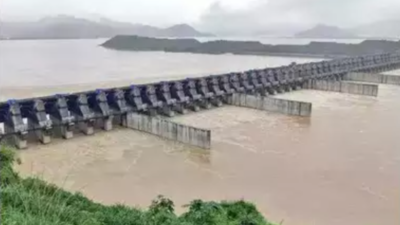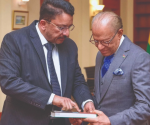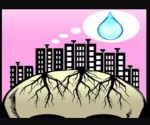Stalemate persists in Godavari-Cauvery link project as states struggle to reach consensus | Chennai News – The Times of India

CHENNAI: A year after circulating the modified detailed project report to southern states and Union territory of Puducherry, the Union govt on Monday said it has made efforts to build the necessary consensus among contending states and Puducherry for implementation of Godavari-Cauvery link project.
It is for the states to reach a consensus, it said. Upon implementation of the river link, Chennai will get 10.1tmcft of water for drinking and industrial use.
In response to a question from AIADMK MP C Ve Shanmugam, Union Jal Shakti minister C R Paatil said, “Allocation of funds and their utilization arises after an interlinking river project reaches the stage of implementation after the states arrive at a consensus and sign a memorandum of agreement for implementation of the project.”
In 2021, Union cabinet approved the Ken-Betwa project to benefit Uttar Pradesh and Madhya Pradesh. The project cost is estimated at Rs 44,605 crore, including Rs 39,317 crore from centre. Recently, Madhya Pradesh, Rajasthan, and Union govt signed a memorandum of agreement for the Parbati-Kalisindh-Chambal link project.
The Godavari-Cauvery link project plans to divert approximately 148 tmcft of unused water from the Indravati sub-basin in Chhattisgarh. This is pending consensus on the Mahanadi-Godavari link and other upper links. The diverted water will be used to irrigate 5.74 lakh hectares in Telangana, Andhra Pradesh and Tamil Nadu. The project also considers domestic, industrial, and other water needs of these three states and Puducherry. This includes the requirements of the Malaprabha sub-basin in Karnataka.
Tamil Nadu govt sources said repeated requests had been made to Union govt and the National Water Development Agency to expedite the consensus process. “Concerns and differing viewpoints among states are causing delays in reaching an agreement. Telangana and Andhra Pradesh have concerns and are not giving consensus. Karnataka wants increased share in the project,” said an official.
Tamil Nadu is expected to receive 41tmcft of water from the project. This allocation includes 17.2tmcft for irrigation, 9.4tmcft for drinking water, and 12.4tmcft for industrial purposes.
















